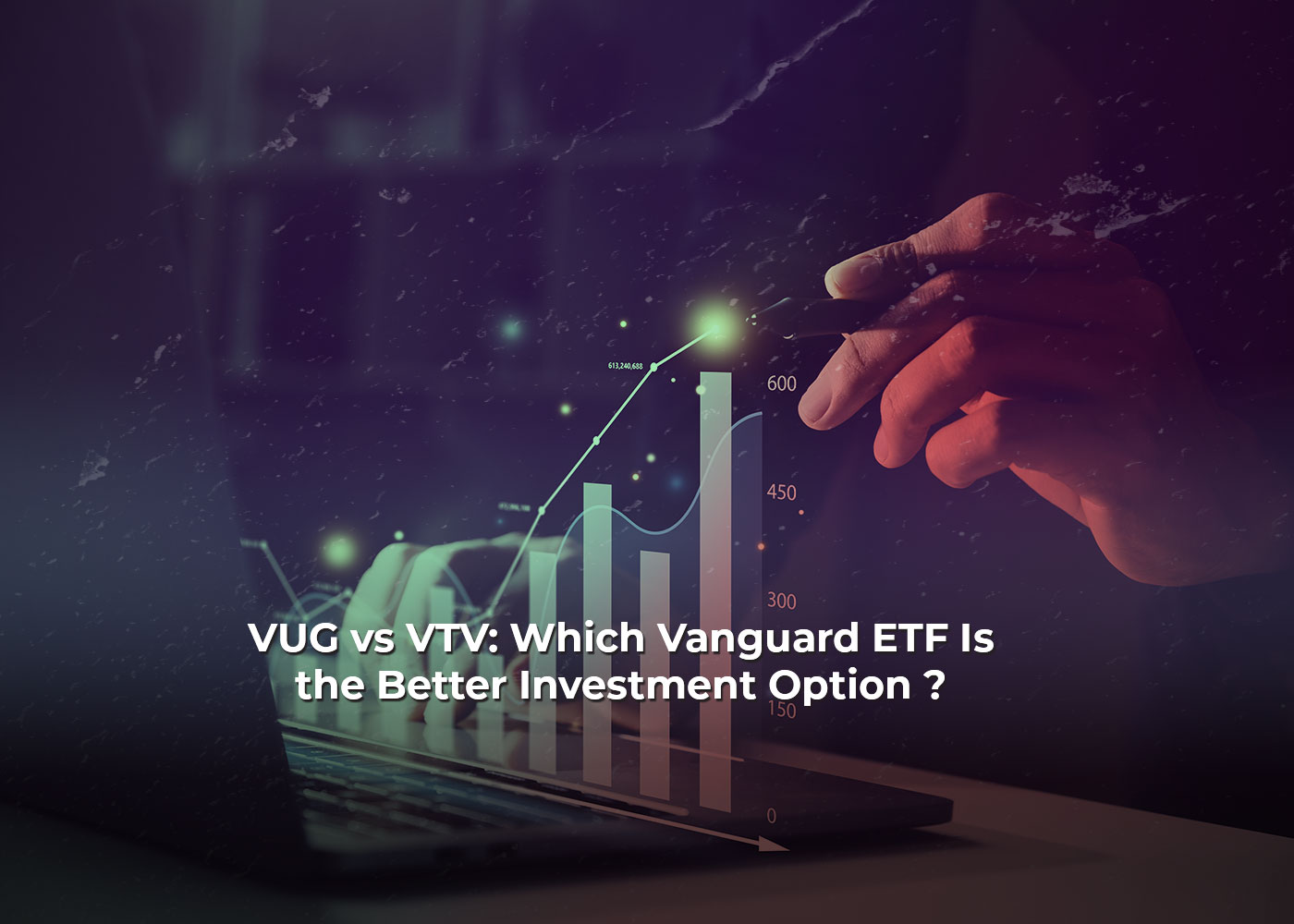VUG vs VTV: Which Vanguard ETF Is the Better
In March and April of 2023, the top Vanguard ETF Comparison on Google was VUG vs VTV. What is the main reason for this? Why do these two funds rank first among the most curious? We have put together the answers to these questions for you.

Investment Option?
In March and April of 2023, the top Vanguard ETF Comparison on Google was VUG vs VTV. What is the main reason for this? Why do these two funds rank first among the most curious? We have put together the answers to these questions for you.
Vanguard ETFs are a popular choice for investors looking to diversify their portfolios and minimize risk. But with so many options, how do you decide on the right ETF? We’ll try to help you make an informed decision about which ETF is best for you, along with its general characteristics and investment options. So let’s try to answer all your questions about two popular Vanguard ETFs, VUG vs VTV.

What is VUG? General Information
VUG is an exchange-traded fund that invests in large-capitalization US growth companies and seeks to track the performance of the CRSP US Large Cap Growth Index. VUG is managed by Vanguard.
It also has a low expense ratio of 0.04%, allowing it to invest in more than 250 large-cap US growth companies. Over the past three years, VUG has consistently outperformed its benchmark with an annualized return of 23.17%. However, VUG does not offer the ability to invest in value stocks, which may limit portfolio diversification.
What is VTV? General Information
VTV is another exchange-traded fund designed to track the performance of the CRSP US Large Cap Value Index. It invests in large-cap US value companies. VTV is managed by Vanguard.
This fund has an expense ratio of 0.04% and invests in more than 360 large-cap US value companies.
Like VUG, VTV has consistently outperformed its benchmark, returning 15.69% annually over the past three years. However, VTV does not offer the ability to invest in growth stocks. This may limit its potential over time.
What are the main differences between the two funds?
The main differences between VUG and VTV are asset allocation and diversification. VUG focuses on large-cap US growth companies, while VTV targets large-cap US value companies.
This is a preference, not a difference. Nevertheless, it would not be wrong to point out the most fundamental difference between the two. In particular, VUG offers the potential for higher returns. This, in turn, comes with higher risk and volatility.
Furthermore, VUG seeks to track the performance of the CRSP US Large Cap Growth Index, while VTV seeks to track the performance of the CRSP US Large Cap Value Index.
Analyzing The Performance Of Two Funds
When comparing VUG and VTV, it is important to look at both yield and risk-adjusted return. Over the last three years, both ETFs have delivered impressive returns, with VUG delivering a better risk-adjusted return due to its concentrated portfolio of large-cap US growth companies.
In terms of diversification and investment, VTV offers a broader market exposure than VUG, covering large-cap U.S. value companies across all sectors, while VUG focuses exclusively on large-cap U.S. growth companies.
When choosing a Vanguard ETF, consider factors such as tax implications, fund management and structure, and fund accessibility. Both VUG and VTV are managed by Vanguard, which is known for its low-cost index ETFs. In addition, both ETFs have low expense ratios, contributing to lower costs and potentially higher investment returns.
Which Should You Choose?
Choosing the ideal Vanguard ETF depends on several factors, including your risk tolerance, investment objectives and time horizon. It’s also important to consider your personal preferences and values when investing.
Both VUG and VTV have their advantages and disadvantages. While VUG offers higher potential returns, it also comes with higher risk and less diversification than VTV.
Conversely, VTV offers broader market risk and more diversification, but the return potential may not be as high as VUG. When deciding on the right Vanguard ETF for your portfolio, do thorough research and weigh all factors before making a decision. Ultimately, the best investment decision depends on your individual investment goals and risk tolerance.




